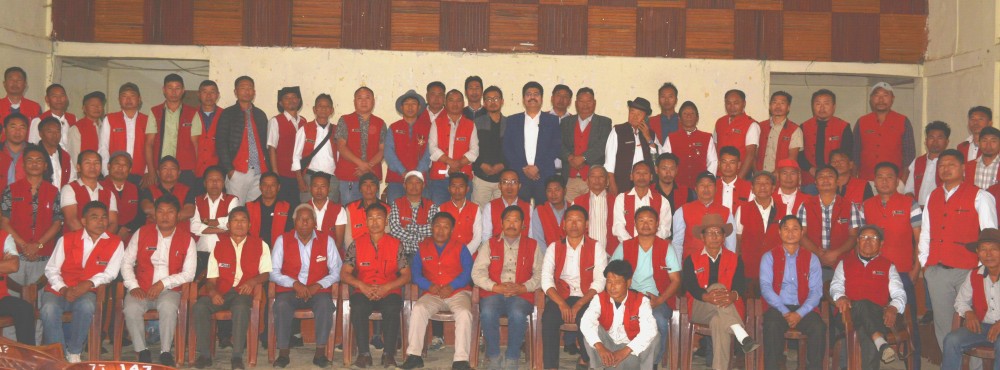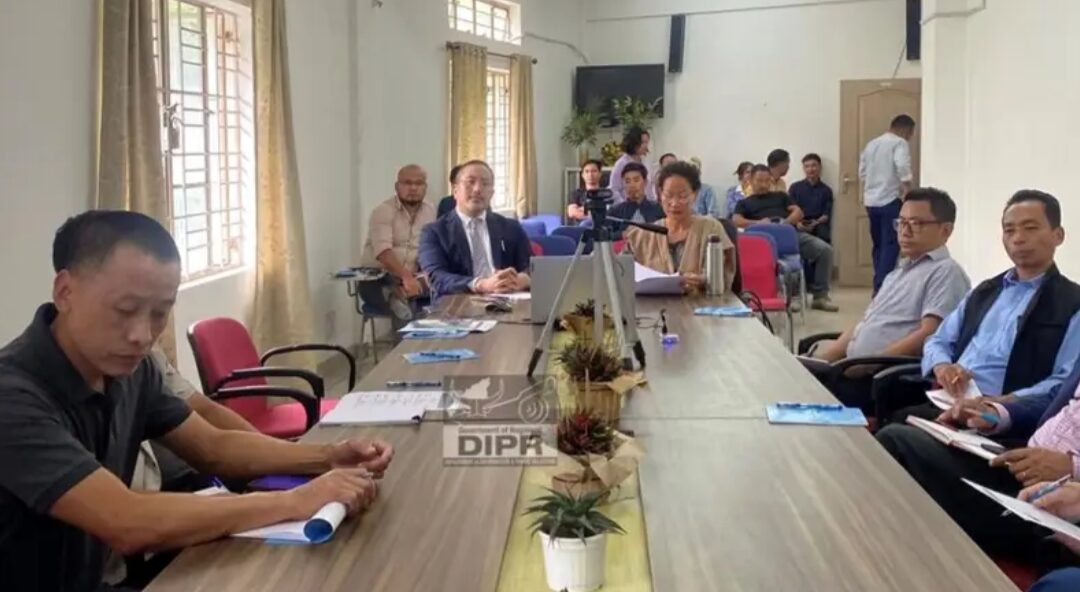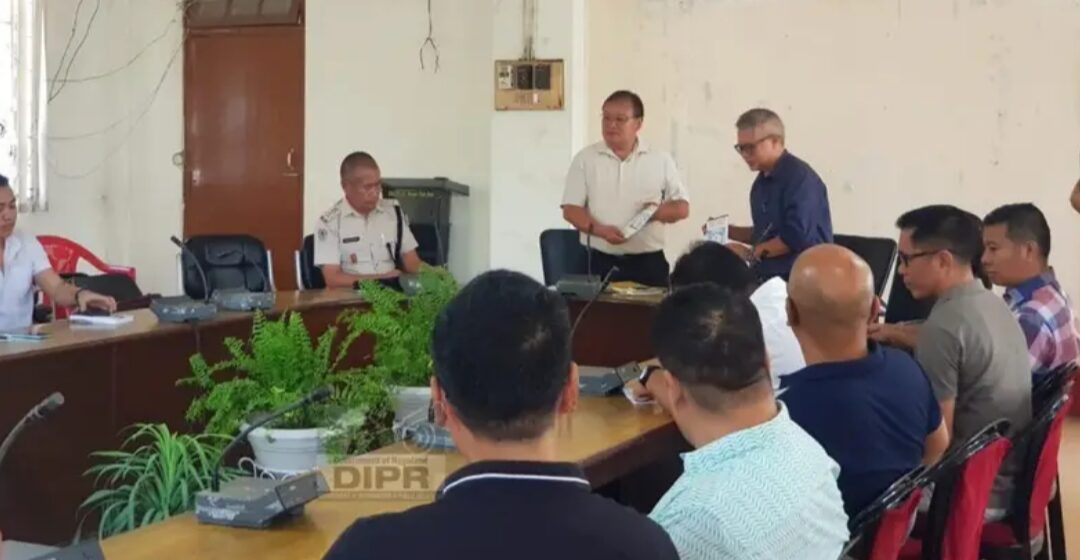Zunheboto Deputy Commissioner Rahul Bhanudas Mali recently praised Dobashis (DBs) as the “foot soldiers of the administration” during a consultative meeting held at Town Hall, Zunheboto, on 6 April 2024. The meeting aimed to encourage DBs to ensure free and fair elections in the upcoming Lok Sabha polls.
During the meeting, Mali advised the DBs to work sincerely for public welfare and refrain from campaigning or getting involved in politics as government servants.
The Extra Assistant Commissioner (EAC) also cautioned DBs against using shortcuts while handling cases, as it erodes public confidence in their role. These words of wisdom emphasise the importance of maintaining integrity and impartiality in their duties.
Also Read: Supongmeren Jamir: Championing Secularism and Minority Rights in Nagaland’s Lok Sabha Battle
The Deputy Commissioner’s request for cooperation from the Dobashis in ensuring free and fair elections in the upcoming Lok Sabha polls highlights their crucial role in the democratic process. As grassroots level administrators, Dobashis have the power to influence and ensure the smooth conduct of elections in their respective areas.
The Crucial Role of Dobashis
Dobashis, village elders appointed by the British colonial administration, have been playing a vital role in Nagaland’s governance for over a century. Initially serving as interpreters between the government and local Naga tribes, their responsibilities have expanded significantly over time. Today, they assist in civil and criminal cases and administer justice based on Naga customary laws.
The unique three-tier system followed by DBs encompasses assisting the civil administration, occasionally performing police duties, and acting as jury members in Dobashi courts.
These courts, which primarily deal with customary laws, are established at district headquarters and subordinate administrative headquarters to deliver justice in Naga society. With over 2000 Dobashis in Nagaland today, their presence is felt throughout the state.
Also Read: Nagaland Unveils Ambitious Tourism Policy 2024, Focusing on Sustainable Development
The Historical Significance of Dobashi Courts
Interestingly, Dobashi courts were not established through any Act but out of necessity and convention during British rule. For instance, the Dobashi court in Mokokchung was established on 1 June 1914. This historical context adds to the significance of the role played by Dobashis in Nagaland’s governance.
The recognition of Dobashis as the “foot soldiers of the administration” by Deputy Commissioner Rahul Bhanudas Mali is a fitting tribute to their tireless efforts in maintaining peace, order, and justice in Naga society.
As Nagaland continues to navigate the challenges of modern governance while preserving its rich cultural heritage, the role of Dobashis remains as important as ever.




